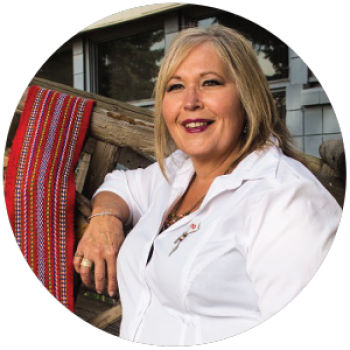Image Caption
Summary
By Shari Narine
Windspeaker.com Contributor
LAC LA BICHE, Alta.
Métis in northeastern Alberta are asking the federal government to bypass the Métis Nation of Alberta provincial association and talk directly with them about recognition, Indigenous rights and self-determination.
“I don’t want to make it like there’s a fight between Region 1 and the MNA,” said Region 1 President Diane Scoville. “We just want our own seat at these tables.”
To that end, Region 1 sent a letter to Carolyn Bennett, federal minister of Crown-Indigenous Relations and Northern Affairs, asking for direct contact.
“Due to a number of factors, including a lack of inclusion by the MNA and a desire by the Historic Métis Community of Northeast Alberta to negotiate on its own behalf, we are hereby formally requesting a Recognition, Indigenous Rights and Self Determination Exploratory Table separate from the MNA,” wrote Scoville.
The letter, dated Feb. 21 and copied to the MNA, is in response to two resolutions passed a week earlier by Region 1, including one at its annual general meeting Feb. 15 stating, in part, that the Métis of Northeast Alberta “are exploring advancement of a land claim, commercial and substance harvesting rights, and self determination as recognized by the United Nations Declaration on the Rights of Indigenous Peoples” and will be doing such on its own because it has “lost confidence in the MNAA provincial office to represent us.”
That “lost confidence” was underscored at the MNA’s annual general assembly last August where a regional protocol agreement was put forward for approval without being offered up to regional councils first for input, said Scoville.
Almost a year of talks between Region 1 and the MNA for such an agreement had been unsuccessful. However, Region 1 Vice President Daniel Cardinal attended the AGA and voted in favour of the protocol agreement, said Scoville.
Scoville had been sick and unable to attend. Cardinal’s actions resulted in a resolution being passed at the February Region 1 AGM suspending him for “failing to represent the position of MNA Region 1 Regional Council at the MNA Annual General Assembly.”
Scoville says the MNA’s regional protocol agreement is not favourable for Region 1.
“We don’t get any support from head office. Our locals have been dealing with industry directly themselves with no support from the region, no support from head office. They’ve been negotiating with industry by themselves. They advocate for dollars themselves. To me, these protocols would take away some of these dollars from the local level,” she said.
Scoville points out that Article 14.1 of the MNA Bylaws, the section that outlines the authority of regional councils, gives each region the power to “govern their own affairs” and Region 1 has chosen to do so outside of the provincial body.
That decision follows despite an eventful year for the MNA. In 2017, MNA President Audrey Poitras signed framework agreements with both the federal and provincial governments.
“The MNA advocates for the collective …, but we are there to advocate for the people in our region. Yes, we do have an overarching body, but we have to speak for the people at the grassroots level,” said Scoville.
While she is not aware of any other regions – the MNA consists of six regions – that have taken the same action as Region 1, Scoville has heard from people residing in other regions, who also have concerns.
Poitras did not respond to a request for an interview from Windspeaker.com.

